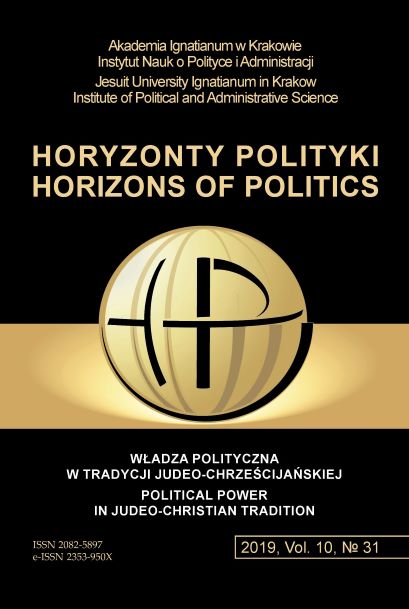Papal Titles as a Manifestation of the Primatial Power of the Bishop of Rome
Papal Titles as a Manifestation of the Primatial Power of the Bishop of Rome
Author(s): Marek ŻmudzińskiSubject(s): Christian Theology and Religion, Political Sciences, Ancient World, Recent History (1900 till today), Biblical studies
Published by: Uniwersytet Ignatianum w Krakowie
Keywords: Church; Pope; authority; primacy; bishop; service;
Summary/Abstract: RESEARCH OBJECTIVE: The paper aims to determine in what manner official papal titles are an expression of supreme power in the Church. THE RESEARCH PROBLEM AND METHODS: The principal problem refers to the ecclesiological correlation between papal titles and primatial power, as well as the ongoing changes in the understanding of power within the Church, manifested by the departure from iurisdictio in favour of communio. Methods involve source text analysis (of the Holy Scripture and ecclesiastical documents), interpretation, and comparison. THE PROCESS OF ARGUMENTATION: All names of the highest office in the Catholic Church are derived from the so called primatial texts which describe St Peter the Apostle and his mission. Together with the practice of the first centuries of Christianity, they have provided a basis for establishing the dogmatic truth about the primacy of St Peter and his successors. The primacy involves supreme jurisdictional power in the Universal Church. In this context, the author proceeds to analyse current papal titles which expose the scope and the multi-faceted nature of the power exercised by the Bishop of Rome. Furthermore, the author presents modifications in the official papal titles, which are simultaneously a reflection of ecclesiastical changes in the area. RESEARCH RESULTS: It has been established that some titles are an expression of real jurisdictional power (e.g. Bishop of Rome, Sovereign of the Vatican City State), while others carry historical and honorary importance (e.g. Primate of Italy) or manifest contemporary tendencies to highlight the religious character of the office (Servant of the Servants of God). CONCLUSIONS, INNOVATIONS, AND RECOMMENDATIONS: A departure from the secular understanding of power in favour of a religious and ministerial direction encourages further, praxeological research, as the primatial practice of individual pontificates (gestures and symbols) precedes the official primatial doctrine.
Journal: Horyzonty Polityki
- Issue Year: 10/2019
- Issue No: 31
- Page Range: 45-59
- Page Count: 15
- Language: English

